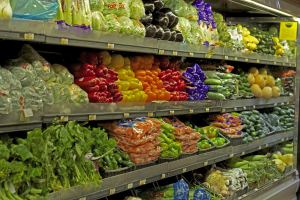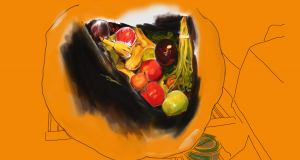There are two things sure in life, death and taxes. And actually, there is a third thing we can be sure of: inflation. Over time prices of almost any product except high tech toys like computers and phones are rising. This is especially obvious with groceries. World food prices have been rising more steadily in recent years. And you might feel that in your wallet. Saving money on groceries is a good way to get around it. How to save money on groceries? Well, here are some tips.
Save money on groceries fast
If you do have some money, it's not too hard to spend it wisely. It's not hard to save money on groceries and yet get good food each day. One of the best tips include create a weekly budget for food, and use cash or a separate bank account especially for this budget. Spend only on food that's good for you and healthy. Go especially for greens, whole wheat food and legume such as beans and lentils. The latter is considered staple food. Don't buy the precooked stuff, as it's a lot cheaper soaking the legume overnight yourself.
Know that it's a journey. Often it's harder in the beginning but once you get rolling it gets easier. See this good example of a one person household who went down from averaging 5$ a day towards a little bit less than 1$ a day on food spending.
Create budget plans
This is by far the best money saver in the world and it's easier than you think. The idea is to set aside weekly budgets for stuff that you buy. This includes groceries and household items. Imagine here your weekly budget is 150$. This money is set aside on a separate account in the start of each week. You can only spend this much on groceries and household stuff. And it's easy to open a new bank account for free in the US, the UK, Australia or Europe.
Then come fixed monthly budgets for rent, mortgage, car, clothes, savings and insurances. You keep these on separate accounts. Your income you can have deposited on this account if you wish, or again, a separate account. You then set automatic transfers from this account to the others. You can do this on a weekly or monthly basis.
In order to get this done, it's vital to make a list of your expenses. It's just as easy though to allocate a guessed budget for the first weeks or months, and then adapt it as you go and see your expenses. But as soon as you use separate accounts, this whole budget thing becomes a lot less cumbersome and a whole lot more easier to manage. No need to use extra apps or software.
Start tracking expenses
If want to know more your spending, you also need to have an idea about how much you're spending on groceries. Keep track of your expenses. If you're already using money management software of apps you can also track your receipts from supermarkets with it. If you're not yet using software the best way to get started might be with your mobile phone. There are some useful Android apps you can try for this.
Stop going to expensive restaurants
Stop going to expensive restaurants. Also stop going to cheap restaurants as the food in a lot of fast food places is not doing much good to your health. And being and staying healthy is a great way to save money in the long run. Preparing your own food is the best way to stay low on sugar, salt and saturated fat, the three main causes of health problems such as diabetics, heart and artery failures.
Discount and bulk
Buy larger quantities as long as you're sure that you won't waste the food. A big fridge or freezer can come in handy for this. Buy discounted products when you come across them and you know you're going to need them.
Don't waste food
Never waste food. The bottom of the jar of peanut butter might be a great addition to your next fusion Asian dish.
Dinner leftovers can be stored in tupperware boxes and reheated the next day for lunch.
Getting food without any money at all
If you're ready to get your hands dirty we have an extensive article about how to get food without money. It encompasses tips such as dumpster diving, growing your own food and asking for free food.



